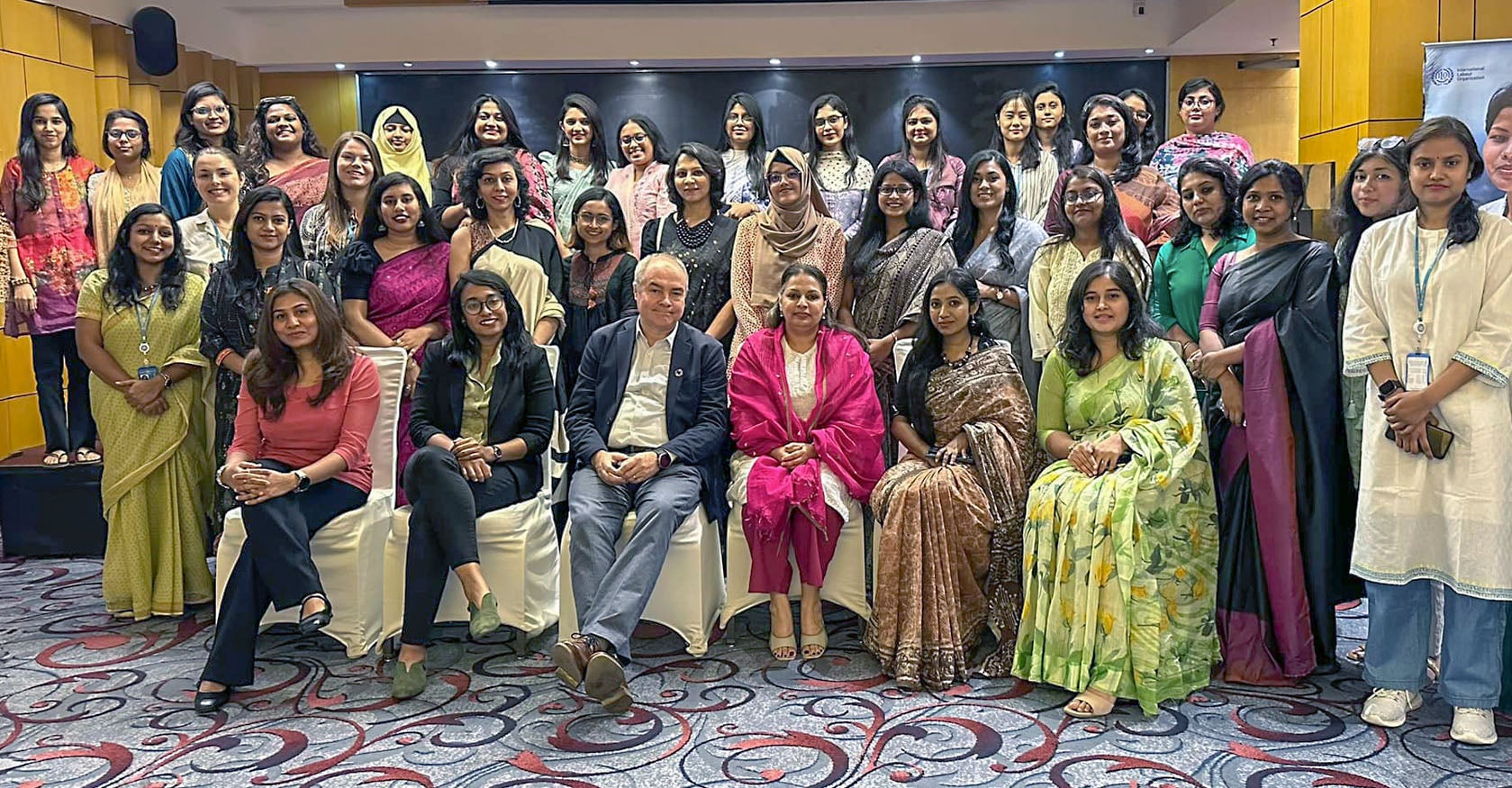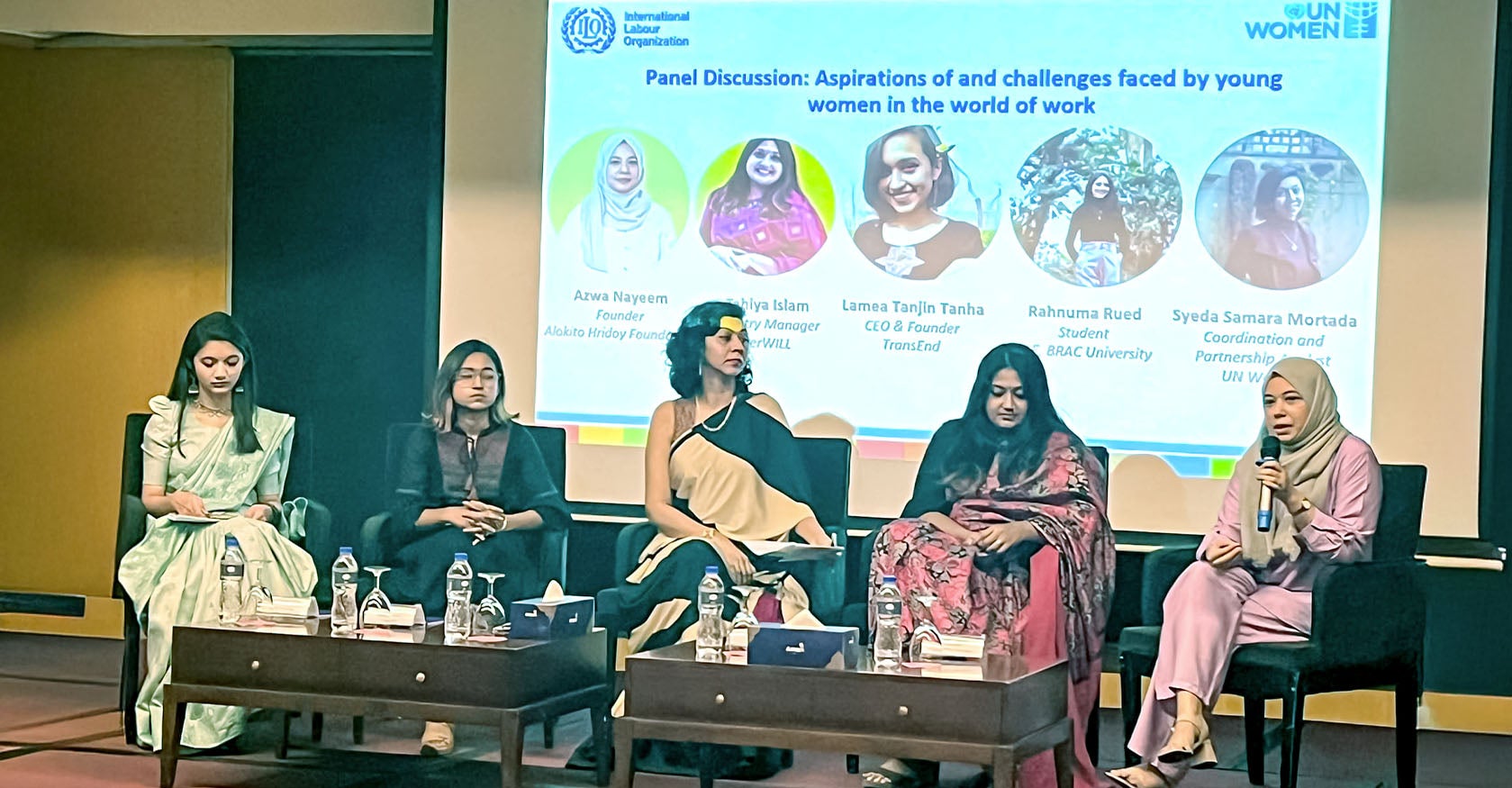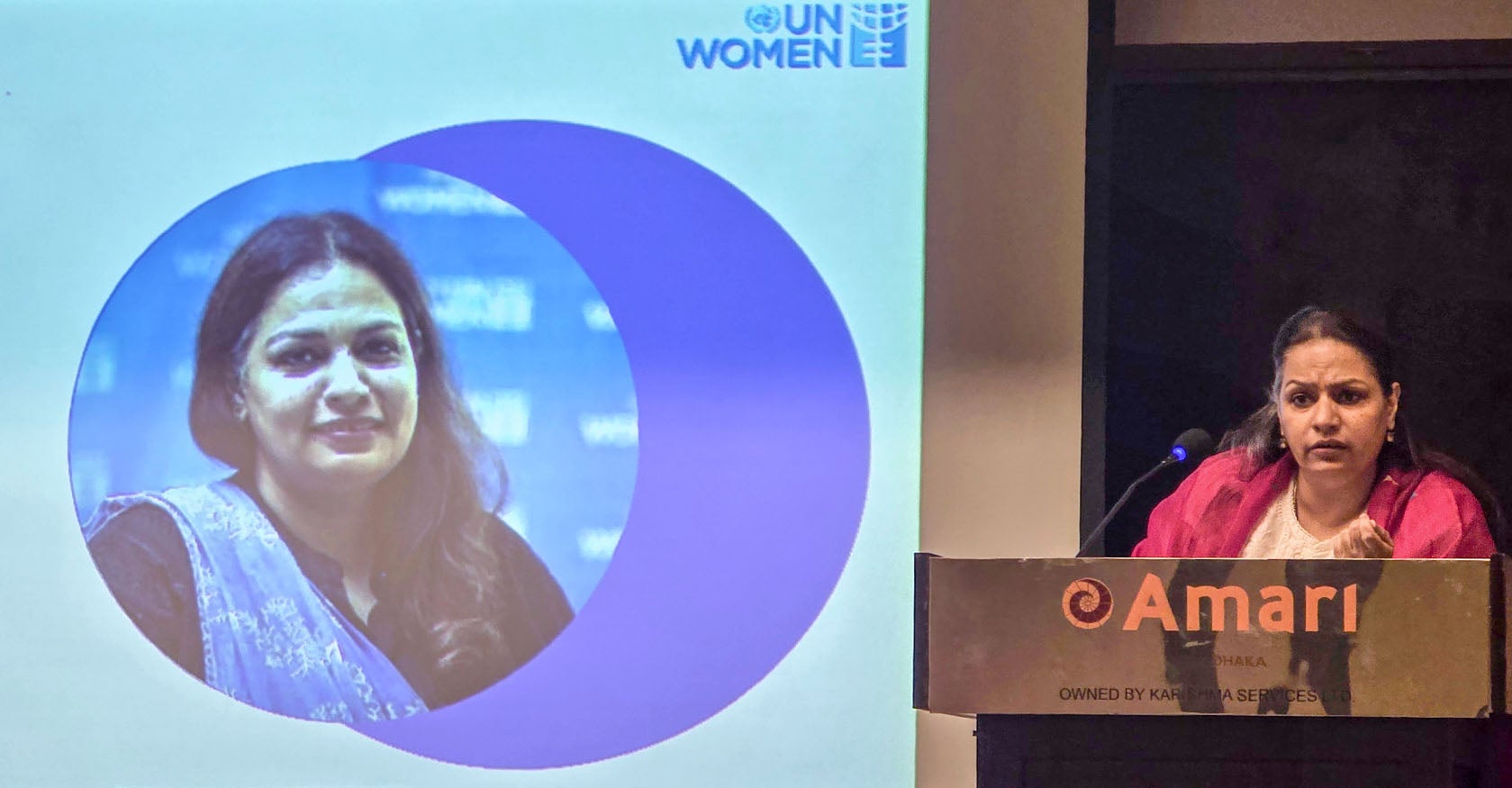Young women lead dialogue on workplace equality and sustainable change for a smart Bangladesh
Date:
Author: Syeda Samara Mortada

Young women from diverse and intersecting backgrounds shared their unique barriers in the world of work and ways of addressing them to build sustainable change, in a recent dialogue co-organized by the International Labour Organization (ILO) and UN Women. Entitled “Youth consultation: Barriers and priorities of women in the world of work”, the event brought together nearly 60 participants, including young women and field experts, to engage in two insightful panel discussions in Dhaka, Bangladesh on 29 October 2024.
The first panel discussion with young women and women-led youth organizations included: Azwa Nayeem, Chairperson, Alokito Hridoy Foundation; Tahiya Islam, Country Manager, HerWill; Lamea Tanjin Tanha, CEO & Founder, TransEnd; and Rahnuma Rued, Student, Computer Science and Engineering (CSE), BRAC University as panelists. They stressed the importance of changing social norms and mindsets to engage women in STEM education and work opportunities and actively working on data-driven interventions.
“Women are assumed to be soft-spoken and to remain in the background. In the process, women become angry feminists as it is difficult in this society to be a happy feminist,” said Tanha.

The second panel included industry representatives such as: Esha Farooq, Assistant Director, Fundraising and Grants Management, Jaago Foundation; Farhana Rashid, Founder and CEO, Bhumijo; Tasnuva Ahmed Tina, Managing Partner, Mindshare Bangladesh; and Munia Islam Mozumder, CEO, Teach for Bangladesh. They addressed the issue of representation and the need for local, accessible solutions. Tina spoke about how stereotypes such as kharap meye (bad girl) affect women working in the media to this day.
Participants at the discussion spoke about the need for partnerships and collaboration that are critical to achieve gender equality; the resources required for women’s economic empowerment; and scaling-up the work on gender equality, as well as scaling-in.
Professionalization, specialization in particular sectors (for example in transport), were mentioned as needed for considerable shifts to take place, particularly in terms of ensuring women’s safety, to and from work.
Participants also spoke about the need for localized investments, particularly in rural areas, and that young women need support on career development and progression to deepen their leadership potential. They also felt that mentoring support is critical, as are fair wages, skills development, focusing on workplace safety and infrastructure, both in urban and rural spaces.
Tuomo Poutiainen, ILO Country Director, said: “ILO is committed to youth employment and ensuring that the voices of youth, boys and girls from all circumstances are heard – this in policymaking and in practice when promoting education and access to skills and decent jobs. We want to make sure that Bangladeshi youth have an equal opportunity to enter the world of work.”

In her closing remarks, UN Women Country Representative Gitanjali Singh spoke about the need to showcase female role models who are shattering the glass ceiling and how these stories of struggles and barriers are also quite similar across the region. She also stressed the need to work with boys and men to dismantle the patriarchy and ensure social change in the long run.
She said, “Women are solution-amplifiers, the drivers of change. Young women know the value of gender equality in their lives, and they are demanding those rights. Collectively, we need to make gender equality a lived reality. Intentionality is important, as change does not happen on its own.”